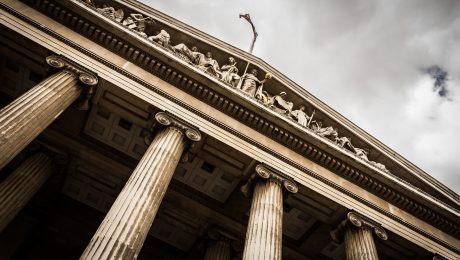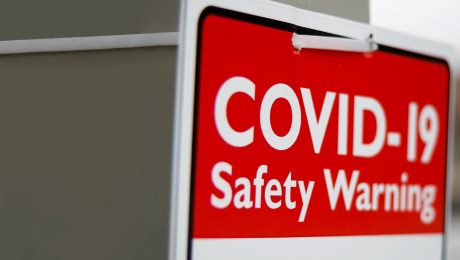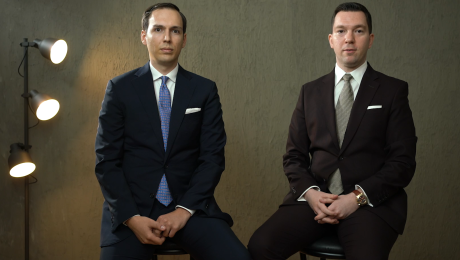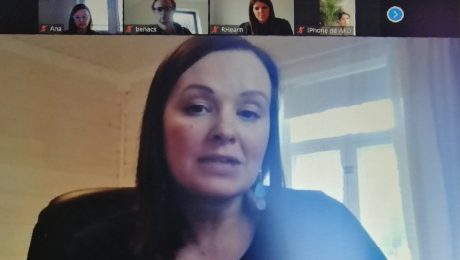Pravilnik o preventivnim merama za bezbedan i zdrav rad za sprečavanje pojave i širenja epidemije zarazne bolesti

Imajući u vidu da je vanredno stanje u Republici Srbiji okončano, poslodavci i zaposleni su se uglavnom vratili obavljanju svojih redovnih poslovnih aktivnosti. Međutim, ukidanjem vanrednog stanja, epidemija COVID-19 nije okončana, usled čega su se poslodavci i zaposleni našli pred izazovom kako obezbediti bezbednost i zdravlje na radu i umanjiti rizik od prenošenja virusa COVID-19 na radnom mestu. Iz tog razloga, Ministarstvo za rad, zapošljavanje, boračka i socijalna pitanja dana 3. jula 2020. godine donelo je Pravilnik o preventivnim merama za bezbedan i zdrav rad za sprečavanje pojave i širenja epidemije zarazne bolesti (,,Službeni glasnik Republike Srbije“ br. 94).
Ovim pravilnikom se propisuju preventivne mere koje je poslodavac dužan da primeni radi sprečavanja pojave i širenja zarazne bolesti i otklanjanja rizika za bezbedan i zdrav rad zaposlenih, kao i lica koja se zateknu u radnoj okolini, kada nadležni organ proglasi epidemiju zarazne bolesti.
Poslodavac je dužan da, za sva radna mesta u radnoj okolini u kojoj se obavlja rad izuzev na terenu i rada od kuće, donese Plan primene mera za sprečavanje pojave i širenja epidemije zarazne bolesti, koji je sastavni deo Akta o proceni rizika koji se donosi saglasno zakonu i propisima iz oblasti bezbednosti i zdravlja na radu. Takođe, Poslodavac je dužan da Plan primene mera, usled nastalih promena koje utiču na bezbedan i zdrav rad tokom trajanja epidemije usaglašava sa odlukama nadležnog organa.
Planom primene mera se utvrđuju mere i aktivnosti kojima se povećava i unapređuje bezbednosti i zdravlje zaposlenih radi sprečavana pojave epidemije zaraznih bolesti, kao i mere i aktivnosti koje se preduzimaju u slučaju pojave epidemije zarazne bolesti, a u cilju bezbednosti i zdravlja na radu zaposlenih i zaštite prisutnih lica.
Plan primene mera obavezno sadrži:
- Preventivne mere i aktivnosti za sprečavanje pojave epidemije zarazne bolesti;
- Zaduženje za sprovođenje i kontrolu sprovođenja preventivnih mera i aktivnosti;
- Mere i aktivnosti za postupanje u slučaju pojave epidemije zarazne bolesti.
Poslodavac je dužan da na svakom radnom mestu u radnoj okolini obezbedi primenu propisanih preventivnih mera, a naročito da:
- Pre početka rada obezbedi pisane instrukcije i uputstva o merama i postupcima za sprečavanje pojave epidemije zarazne bolesti, koje sadrži informaciju o simptomima zarazne bolesti;
- U skladu sa mogućnostima, ukoliko nije organizovan rad u smenama, izvrši preraspodelu radnog vremena uvođenjem druge ili treće smene sa manjim brojem zaposlenih;
- Sprovodi pojačanu higijenu i dezinfekciju radnih i pomoćnih prostorija, kao i čišćene svih površina koje se često dodiruju na radnom mestu, kao što su toaleti, kvake na vratima, fiksni telefoni, računarska oprema i druga oprema za rad..
U slučaju pojave zarazne bolesti kod zaposlenih, Poslodavac je u obavezi da obezbedi primenu preventivnih mera, a naročito da:
- Prostor u kome je boravio zaposleni koji je zaražen redovno fizički i hemijski dezinfikuje i provetrava;
- Poštuje sve procedure ulaska i izlaska u prostorije poslodavca, koristi propisana sredstva i opremu za ličnu zaštitu na radu i druge mere zaštite tokom procesa rada;
- Svede kontakte zaposlenih iz organizacione jedinice u kojoj je boravio zaposleni koji je zaražen sa drugim zaposlenima samo na nužne uz propisane mere zaštite..
Poslodavac je dužan da u Planu primene mera uredi obaveze i odgovornosti u vezi sa praćenjem i kontrolom primene mera bezbednosti i zdravlja na radu, dok samu proveru efikasnosti primene mera kod poslodavca vrši lice za bezbednost i zdravlje na radu.
Pored obaveza koje poslodavac treba da sprovede, ovim Pravilnikom se utvrđuje i niz obaveza kojih zaposleni treba da se pridržavaju a između ostalog da:
- Sprovode sve preventivne mere;
- Namenski koriste propisana sredstva i opremu za ličnu zaštitu na radu i dodatno brinu o svojoj higijeni tako što će redovno i pravilno prati ruke vodom;
- Obavezno obaveste poslodavca ukoliko posumnjaju na simptome zarazne bolesti kod sebe, kod drugih zaposlenih ili članova svoje porodice, kao i da obaveste poslodavca o svim nepravilnostima i štetnostima koje bi na radnom mestu mogle da ugroze bezbednost i zdravlje..
Ovaj Pravilnik stupa na snagu 11. jula 2020. godine, a u roku od 30 dana od dana stupanja na snagu, poslodavci su u obavezi da usvoje Plan primene mera i da izmene Akt o proceni rizika.
Ako imate bilo kakva pitanja u vezi sa ovom temom, budite slobodni da kontaktirate Anu Popović: ana.popovic@zslaw.rs, partnera u advokatskoj kancelariji Živković Samardžić ili Vašu redovnu kontakt osobu u advokatskoj kancelariji Živković Samardžić.
Rulebook on preventive measures for safe and healthy work to prevent the occurrence and spread of an epidemic of infectious diseases
Having in mind that the state of emergency in the Republic of Serbia has ended, employers and employees have mostly returned to performing their regular business activities. However, the lifting of the state of emergency did not end the COVID-19 epidemic, which put employers and employees in a challenge to ensure safety and health at work and reduce the risk of transmitting the COVID-19 virus in the workplace. For that reason, on July 3th, 2020, the Ministry of Labor, Employment, Veterans and Social Affairs adopted the Rulebook on preventive measures for safe and healthy work to prevent the occurrence and spread of an epidemic of infectious diseases (“Official Gazette of the Republic of Serbia” no. 94).
This Rulebook prescribes preventive measures that the employer is obliged to apply in order to prevent the occurrence and spread of infectious diseases and eliminate risks for safe and healthy work of employees, as well as persons found in the work environment, when the competent authority declares an epidemic of infectious diseases.
The employer is obliged to, for all workplaces in the work environment in which work is performed, except in the field and work from home, adopt a Plan for the implementation of measures to prevent the occurrence and spread of epidemics of infectious diseases, which is an integral part of the Risk Assessment Act, which shall be adopted in accordance with law and regulations in the field of safety and health at work. Also, the Employer is obliged to harmonize the Plan of implementation of measures, due to the changes that affect safe and healthy work during the epidemic, with the decisions of the competent authority.
The implementation plan determines measures and activities that increase and improve the safety and health of employees in order to prevent the outbreak of infectious diseases, as well as measures and activities taken in case of an epidemic of infectious diseases, for the purpose of safety and health at work of employees and protection of the present persons.
The plan for the implementation of measures must contain:
- Preventive measures and activities to prevent the outbreak of an infectious disease epidemic;
- Responsibility for implementation and control of implementation of preventive measures and activities;
- Measures and activities for action in case of an outbreak of an infectious disease…
The employer is obliged to ensure the application of the prescribed preventive measures at every workplace in the work environment, and in particular to:
- Before starting work, provide written instructions and instructions on measures and procedures to prevent the outbreak of an infectious disease epidemic, which contains information on the symptoms of an infectious disease;
- In accordance with the possibilities, if work in shifts is not organized, redistribute working hours by introducing the second or third shift with a smaller number of employees;
- It provides enhanced hygiene and disinfection of work and auxiliary rooms, as well as cleaning of all surfaces that are frequently touched in the workplace, such as toilets, door handles, landlines, computer equipment and other work equipment…
In the case of an infectious disease in employees, the employer is obliged to ensure the application of preventive measures, and in particular to:
- The area in which the infected employee stayed is regularly physically and chemically disinfected and ventilated;
- Respects all procedures for entering and exiting the employer’s premises, uses the prescribed means and equipment for personal protection at work and other protection measures during the work process;
- Reduces the contacts of employees from the organizational unit in which the employee who was infected was staying, with other employees only to the necessary ones with the prescribed protection measures..
The employer is obliged to regulate the obligations and responsibilities in the Implementation Plan regarding the monitoring and control of the application of safety and health measures at work, while the check of the effectiveness of the application of measures by the employer is performed by the person for safety and health at work.
In addition to the obligations that the employer should implement, this Rulebook also establishes a number of obligations which employees should adhere to, and among other things, to:
- Implement all preventive measures;
- They purposefully use the prescribed means and equipment for personal protection at work and additionally take care of their hygiene by washing their hands regularly and correctly with water;
- Be sure to inform the employer if they suspect symptoms of a contagious disease in themselves, other employees or family members, as well as to inform the employer of any irregularities and harms that could endanger safety and health in the workplace..
This Rulebook enters into force on July 11th, 2020, and within 30 days from the day of entry into force, employers are obliged to adopt the Implementation Plan and amend the Risk Assessment Act.
If you have any questions or need additional information regarding this topic, we invite you to follow our newsletters and/ or contact Ana Popovic, ana.popovic@zslaw.rs. Partner in the employment department at the Zivkovic Samardzic law office, as well as the regular contact at the Zivkovic Samardzic law office at office@zslaw.rs.
- Published in News, Featured, Client Updates, COVID-19
Conclusion of the High Judicial Council regarding the reduction of the work of courts and prosecutor’s offices in the cities of the Republic of Serbia
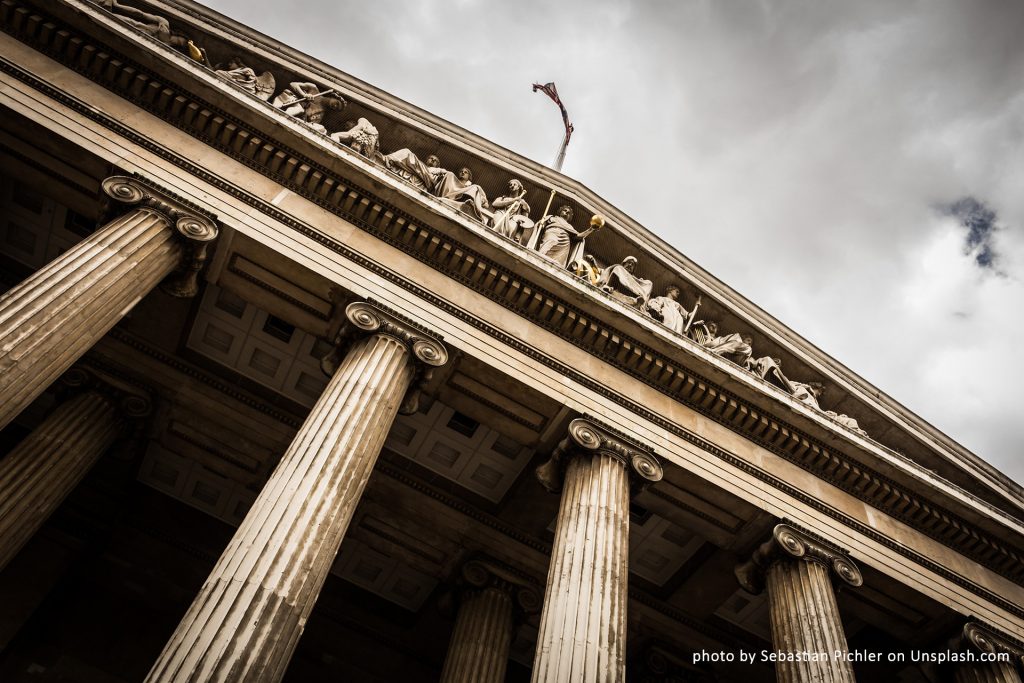
On 30.06.2020. The High Judicial Council, on the occasion of declaring a state of emergency in some cities of the Republic of Serbia, due to the danger of spreading coronavirus (COVID 19), concludes on the organization of work of courts whose seat is work in the city where the state of emergency was declared.
This conclusion implies that the president of the court whose seat is on the territory of the city where the state of emergency was declared, upon the proposal of the Emergency Situations Headquarters, organizes the work of the court in accordance with the recommendations for the work of courts and public prosecutor’s offices during the state of emergency declared on March 15, 2020. year passed by the Ministry of Justice 17.03.2020. year, the conclusion of the High Judicial Council no. 119-05-132 / 2020-01 dated 18.03.2020. year, by correcting the conclusion of the High Judicial Council no. 119-05-132 / 2020-01 dated 19.03.2020. year and the conclusion of the High Judicial Council no. 021-05-40 / 2020-01 from 09.04.2020. years.
The manner of organizing the work of the courts from the conclusion lasts until the decision on the abolition of the emergency situation is made.
For all additional questions about the course of litigation and non-litigation proceedings during the state of emergency, follow our announcements or contact Miloš Milošević, Ivan Ljubisavljević or your regular contact in the law office Živković Samardžić.
Zaključak Visokog saveta sudstva u vezi sa redukovanjem rada sudova i tužilaštava u gradovima Republike Srbije
Dana 30.06.2020. godine Visoki savet sudstva, povodom proglašenja vanredne situacije u pojedinim gradovima Republike Srbije, zbog postojanja opasnosti od širenja Korona virusa (COVID 19) donosi Zaključak o organizaciji rada sudova čije je sedište rad na teritoriji grada u kojem je proglašena vanredna situacija.
Ovaj Zaključak podrazumeva da predsednik suda čije je sedište na teritoriji grada u kojem je proglašena vanredna situacija, po predlogu Štaba za vanredne situacije, organizuje rad suda u skladu sa preporukama za rad sudova I javnih tužilaštava za vreme vanrednog stanja proglašenog 15.03.2020. godine donetog od strane Ministarstva pravde 17.03.2020. godine, Zaključka Visokog saveta sudstva br. 119-05-132/2020-01 od 18.03.2020. godine, ispravkom zaključka Visokog saveta sudstva br. 119-05-132/2020-01 od 19.03.2020. godine I Zaključka Viskokog saveta sudstva br. 021-05-40/2020-01 od 09.04.2020. godine.
Način organizovanja rada sudova iz Zaključka traje do donošenja odluke o ukidanju vanredne situacije.
Za sva dodatna pitanja toka parničnih i vanparničnih postupaka za vreme trajanja vanredne situacije pratite naše objave ili kontaktirajte Miloša Miloševića, Ivana Ljubisavljevića ili vaš redovan kontakt u advokatskoj kancelariji Živković Samardžić.
- Published in News, Featured, Client Updates, COVID-19
Živković Samardžić secures Court of Appeal victory for Crime and Corruption Reporting Network (KRIK)

Kruna Savović, Živković Samardžić Technology, Media and Telecommunications Partner and a Head of Media Litigation, led the Živković Samardžić team that has achieved a victory for Crime and Corruption Reporting Network (KRIK). Crime and Corruption Reporting Network (KRIK) is a non-profit organization established to improve investigative journalism in Serbia.
The Court of Appeal in Belgrade confirmed that KRIK journalists did not violate the honor and reputation of businessman Vladimir Šekrevski in the article “Serbian citizens in Paradise Papers” published in November 2017. In the decision, the court confirmed that the journalists acted with due professional care, that they checked the information before publishing it, and that Šekrevski himself did not deny its truthfulness. The verdict in favor of KRIK is final and Šekrevski will have to pay the costs of the procedure.
In this manner, the Court of Appeal in Belgrade confirmed an earlier decision of the First-instance court, to reject as unfounded Mr Šekrevski’s claim that KRIK has damaged his reputation and honor by their reporting on the Paradise Papers. Živković Samardžić team of lawyers successfully represented KRIK during the entire proceedings.
The judge stated that the journalists of KRIK published information that is of interest to the public, and that journalistic freedom means a certain amount of exaggeration or even provocation in order to draw the public’s attention to an important topic, as long as the obligation of journalists to report accurately, objectively, completely and in a timely manner is respected.
KRIK has been victorious in all proceeding instigated against them concerning the texts they wrote within the “Paradise Papers”, an important international project involving 96 media from 67 countries.
Full report on the case in the Serbian is available here.
- Published in News, Featured, Deals and Cases
Hybrid Financing Instruments in the Early Stages of Start-ups in Serbia and Germany

Igor Živkovski, Živković Samardžić Corporate and M&A Partner and Aleksandar Đurđević, Freshfields Bruckhaus Deringer LLP Transaction Lawyer, coauthored an article on advantages and disadvantages of hybrid financing instruments in the early stages of start-ups in Serbia and Germany, which was published in “Herald of the Bar Association of Vojvodina – Journal of Legal Theory and Practice”, Bar Association of Vojvodina, Issue 4/2019.
The subject of this article is comparative analysis of hybrid financing instruments that are used in start-up financing in Serbia and Germany. Development and growth of the start-up industry worldwide has lead to the creation of various financing instruments. In addition to the traditional financing instruments – debt financing and equity financing, business practice has given rise to the creation of financing instruments that have the elements of both debt and equity. Those instruments are referred to as hybrid financing instruments, or, in other words, mezzanine capital instruments. The core advantage of these instruments is their flexibility in structuring of the financing rounds, as well as the fact that the investors, who have a strong bargaining position in early stage financing, can obtain higher levels of control of their investment, while not exposing themselves to unnecessary risk.
Full text of the article is available here.
This article was originally published in “Herald of the Bar Association of Vojvodina – Journal of Legal Theory and Practice”, Bar Association of Vojvodina, Issue 4/2019 and is only available in Serbian. Click here to view the entire Issue.
- Published in Publications, News, Featured
Ustavni sud o proglašenju vanrednog stanja
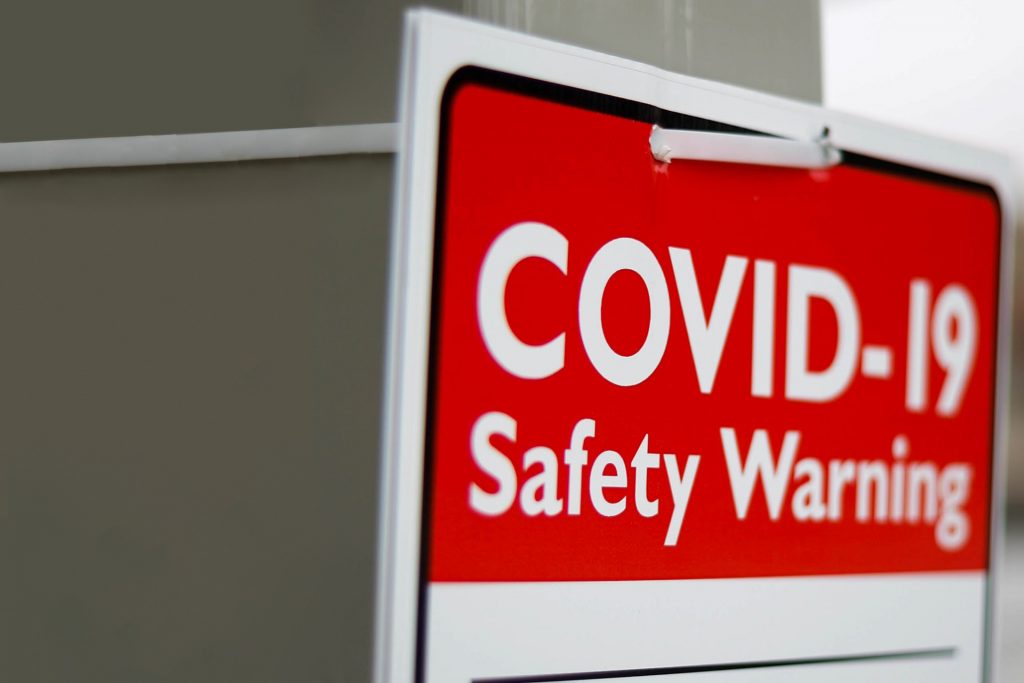
Ustavni sud o proglašenju vanrednog stanja – nemogućnost sastajanja Narodne skupštine je faktičko a ne pravno pitanje. Ustav daje prednost reprezetativnosti, ali efikasnost stupa na mesto reprezentativnosti voljom Ustava u situacijama kada mogu nastupiti nesagledivo štetne posledice.
Iz obrazloženja Rešenja o odbačaju inicijative za ocenu ustavnosti i zakonitosti Odluke o proglašenju vanrednog stanja:
„Pitanje (ne)mogućnosti da se Narodna skupština sastane je, prema oceni Ustavnog suda, faktičko, a ne pravno pitanje, imajući u vidu da Ustav, a ni drugi pravni akti nisu odredili koje su to situacije kad Narodna skupština nije u mogućnosti da se sastane, a naročito imajući u vidu i činjenicu da Ustavni sud ne može da ocenjuje organizacione mogućnosti Narodne skupštine da se sastane bez odlaganja u uslovima postojanja opasnosti po život i zdravlje ljudi. Stoga, Ustavni sud nema ustavno, niti drugo pravno „merilo“ na osnovu kojeg bi mogao dovesti u pitanje obaveštenje predsednika Narodne skupštine da parlament nije bio u mogućnosti da se sastane. Povodom navoda pojedinih inicijativa da Naredba ministra zdravlja o zabrani okupljanja u Republici Srbiji na javnim mestima u zatvorenom prostoru nije mogla biti „pravni osnov“ za nemogućnost sastajanja Narodne skupštine, Ustavni sud ukazuje na to da treba praviti razliku između pravnog osnova za odlučivanje i uzimanja u obzir određenih činjenica pri odlučivanju. „Odluka“ da se Narodna skupština ne sastane najpre nije nikakva pravna odluka, već obaveštenje predsednika Narodne skupštine nadležnim organima. U tom smislu, ona i ne može imati pravni osnov, pa samim tim i navedena naredba ministra zdravlja to nije u ovom slučaju, pri čemu, po mišljenju Ustavnog suda, sadržina i ovog akta može biti jedna od faktičkih okolnosti ili razloga koji su rukovodili predsednika Narodne skupštine da obavesti predsednika Republike i predsednika Vlade o nemogućnosti sastajanja Narodne skupštine.
…između postupka proglašenja u kojem odluku o proglašenju vanrednog stanja donosi Narodna skupština i tzv. alternativnog postupka, koji je primenjen u konkretnom slučaju, postoji jedna suštinska razlika: u prvom postupku, odluka o proglašenju vanrednog stanja donosi se posle skupštinske rasprave; u alternativnom postupku, ta rasprava izostaje. Dakle, reprezentativnost, kao kriterijum kojem Ustav daje prednost u odnosu na efikasnost odlučivanja o vanrednom stanju, ustupa, voljom Ustava, a ne protivno toj volji, mesto efikasnosti, jer „čekanje“ da se steknu uslovi za sastajanje narodnog predstavništva mogu imati nesagledivo štetne posledice i sprečiti državu da deluje hitno na otklanjanju uzroka proglašenja vanrednog stanja.“
- Published in News, Featured, Client Updates, COVID-19
Igor Živkovski and Sava Pavlović to Give Lectures at eCommerce Academy by eCommerce Association of Serbia
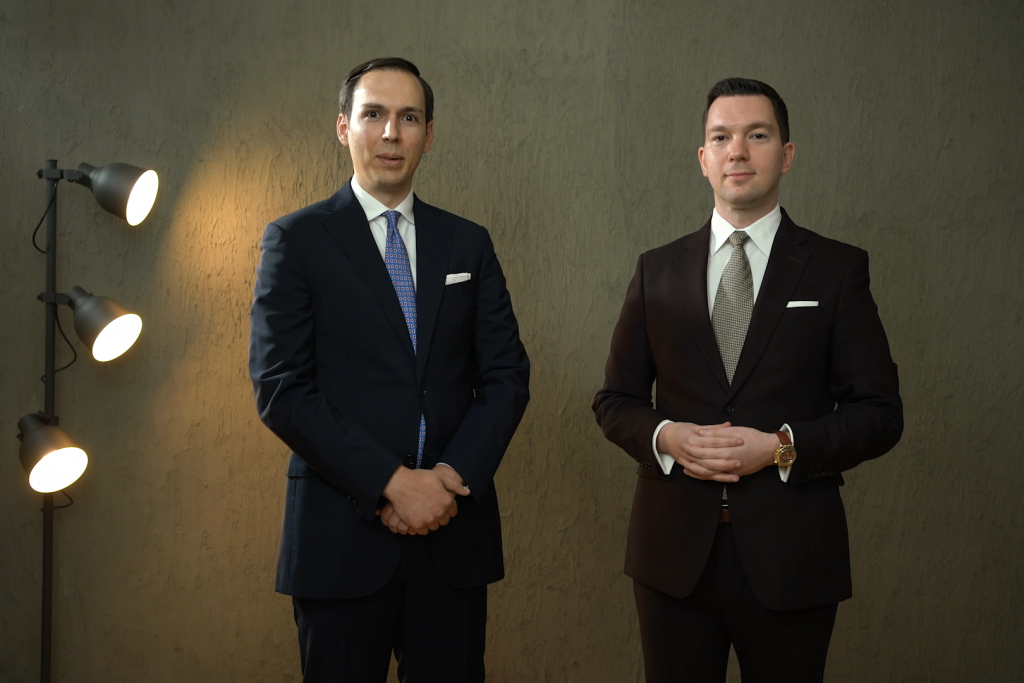
Igor Živkovski, Živković Samardžić Corporate and M&A Partner and Sava Pavlović, Corporate and M&A Senior Associate will give lectures on the topic of legal aspects of e-commerce in Serbia at eCommerce Academy organized by eCommerce Association of Serbia.
eCommerce Association of Serbia gathers all the relevant factors of the digital ecosystem for the sake of common improvement of e-commerce market of Serbia. It advocates the promotion of safe e-commerce as well as the regulation and encouragement of all of those who are part of this process through educating consumers and traders. The goal of eCommerce Association of Serbia is to map the market and to raise the standards of e-commerce industry in Serbia, for the purpose of assimilation into global e-commerce flows.
eCommerce Association of Serbia established eCommerce Academy, which gathers 16 experts from the digital ecosystem. The experts will through their online lectures and interactive workshops teach the participants about the 15 key areas of e-commerce.
eCommerce Academy is equally intended to those who already find themselves in this area, but also to all of those who wish to learn more about the digital ecosystem and how business works in a virtual world.
In addition to the topics about relevant legal framework and judicial and extrajudicial procedures in which trader may be found as a party, the participants will be able to gain knowledge of their rights and obligations under the consumer rights regulations, as well as on the specifics of their position in online sale of goods. Having in mind that e-commerce platforms and web shops are highly represented, these topics are of great importance for those who have or want to launch their e-commerce business.
If you are interested in finding out more or have any questions on the topic, please contact Igor Živkovski at igor.zivkovski@zslaw.rs or Sava Pavlović at sava.pavlovic@zslaw.rs.
Virtual meeting of the Employment Special Interests Group
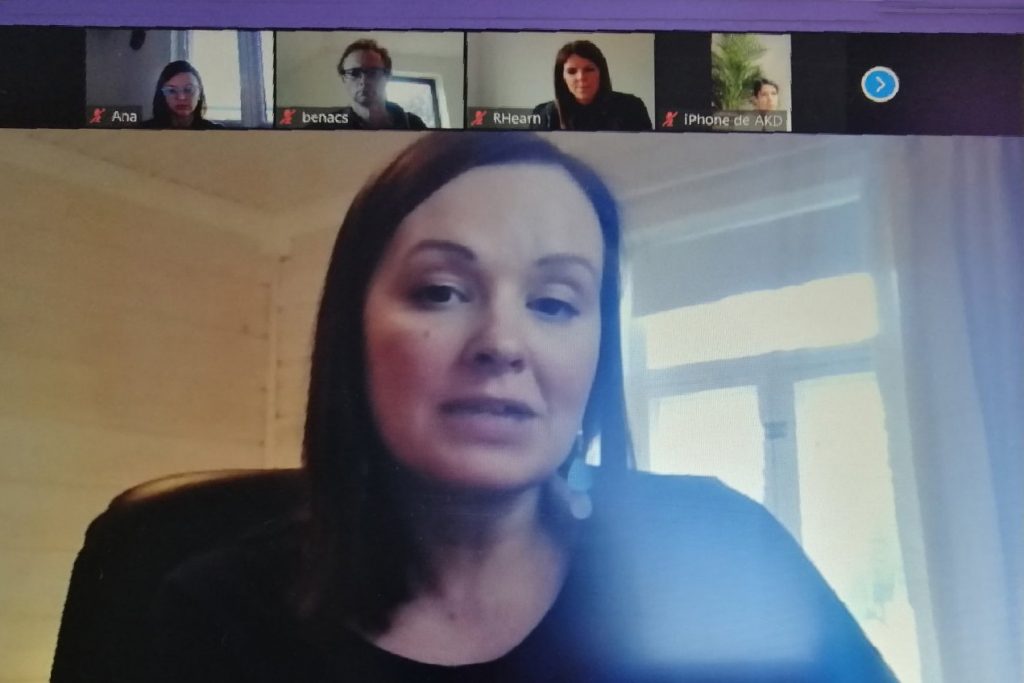
Živković Samardžić Law Office is an active member of an Association of European Lawyers (AEL). With the postponement of Special Interest Group (SIG) Day in Brussels in March due to the coronavirus outbreak, AEL organized virtual meeting of the Employment Special Interest Group to discuss how we are all coping with these unprecedented circumstances with 30 participants from 20 different member firms in attendance.
The crisis is likely to lead to increased levels of certain types of work with cross-border aspects, including restructuring and insolvency (R&I) and M&A projects involving those companies which are particularly badly affected by the economic downturn. It seems that there would be mutual benefits in connecting firms within the AEL network to exchange experiences and thinking on business development opportunities in these areas. AEL is also considering arranging similar virtual meetings to discuss the impact of COVID-19 in other specialist areas, such as competition and tax as part of the activities of the SIGs for those areas.
Ana Popović, Partner at Živković Samardžić Law Office and Head of Employment Department had an opportunity to briefly explain what steps are being taken so far as it concerns the workforce in our jurisdiction.
Živković Samardžić Law Office is grateful to AEL for bringing together all colleagues in specialist areas across member firms, to collaborate in relation to the COVID-19 crisis.
- Published in News, Featured, Client Updates, COVID-19
Serbia Lifts State of Emergency and Cancels Curfew
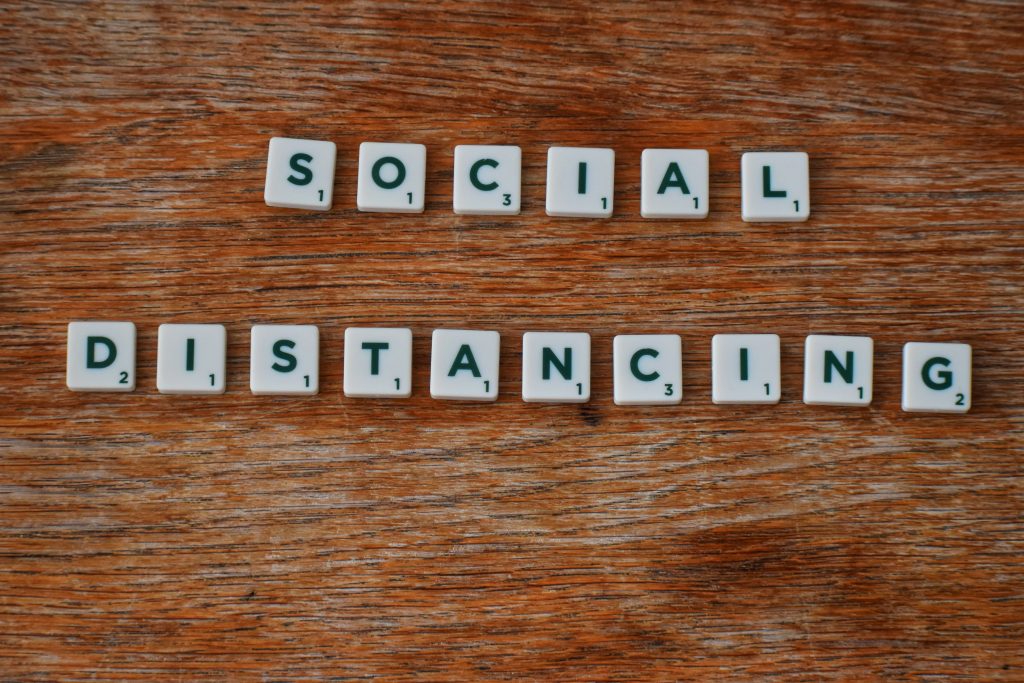
On May 6, 2020, the National Assembly of the Republic of Serbia adopted the Decision on Lifting the State of Emergency (hereinafter: Decision), which was introduced on March 15, 2020. The Decision was published on the same day in the “Official Gazette of the Republic of Serbia”, No. 65/2020 and came into force immediately.
Although the state of emergency has been lifted and the curfew cancelled, certain emergency measures such as two-metre social distance, contacts such as hugging and hand shaking, will have to be avoided, and the ban of public events remain in force. Walks are allowed, but not in groups, wearing gloves and masks will be mandatory in public transport vehicles, restaurants and cafes. Crisis taskforce will continue operating, and testing ensuring full safety and work on preventing a potential second wave of the epidemic will be continued as well.
In addition to the Decision, the Law on the Validity of the Decrees Passed by the Serbian Government During the State of Emergency with a Co-signature of the President of the Republic and Confirmed by the Serbian Parliament was adopted as well. 15 decrees related to assistance to the business sector and agribusiness, road transport, deadlines for submitting financial reports and administrative procedures will remain in force until the adoption of related laws, while 11 decrees that were in force during the state of emergency were abolished.
Also, the Decree on Preventive Measures for Safe and Healthy Work for Prevention of Dissemination of COVID-19 Infectious Disease Caused by SARS-CoV-2(hereinafter: Decree) is currently in preparation and it is expected that it will be adopted soon. The Decree prescribes the preventive measures that the employer is obliged to fulfil to ensure safe work and health of employees, as well as people found in the work environment, for prevention of dissemination of COVID-19.
Decree regulates obligation of the employer to adopt a Plan of preventive measures and activities for the prevention of appearance and spreading the infectious disease COVID-19 caused by the SARS-CoV-2 virus (hereinafter: Plan) for all workplaces in the work environment, no later than 15 days after the entry into force of the Decree.
Decree also regulates mandatory content of the Plan and among other things the Plan shall include provisions relating to:
- Preventive measures and activities for the prevention of appearance and spreading the infectious disease COVID-19 caused by the SARS-CoV-2 virus;
- Assignments for the implementation and control of the implementation of preventive measures and activities and
- Measures and activities to be followed in case that infectious disease COVID-19 caused by the SARS-CoV-2 virus appears.
Also, the Plan shall contain provisions related to the obligations of employees regarding the implementation of preventive measures of safety and health at work to preserve their health, as well as the health of other employees.
Inspection supervision over the implementation of this Decree will be performed by the Ministry of Labour, Employment, Veteran and Social Affairs through labour inspectors. Decree prescribes penal provisions which determine high fines for employers and employees who violate the rules prescribed by the Decree.
On May 6, 2020, the Supreme Court of Cassation has published on its Internet page the Instruction on the work of courts as part of the application of measures of preventing the spread of the virus SARS-CoV-2 (hereinafter: Instruction). Measures specified in the Instruction prescribe obligation of thorough cleaning and disinfection of workspace and equipment before the commencement of work, as well as proper handling of existing running water installations to ensure adequate quality of drinking water. At the entrance to the facilities it is necessary to place disinfection barriers and hand disinfection dozers, while the use of protective masks and gloves is mandatory for both employees and visitors of the court. Likewise, upon entering the facility a body temperature check, performed by using handheld remote meters, is mandatory for all persons, as well as maintaining social distance during their stay at the facility. The number of persons present in the facility is limited to a necessary minimum. In addition to the above, carrying out workspace and equipment disinfection after each use is also prescribed, as well as adequate equipping of sanitary facilities.
Finally, on May 7, 2020, the High Court Council passed the Conclusion which determines that the conditions for normalization of work of the courts in Republic of Serbia are met beginning from May 11, 2020. Conclusion introduces Rules of procedure for employees and parties within courts regarding the protection of health and prevention of further spread of the epidemics caused by COVID-19 virus, which further elaborates measures from the Instruction.
Should you have any questions regarding this matter, please contact Igor Živkovski, Živković Samardžić Partner, or any of your regular contacts at Živković Samardžić.
U Srbiji ukinuti vanredno stanje i policijski čas
Dana 6. maja 2020. godine Narodna skupština Republike Srbije usvojila je Odluku o ukidanju vanrednog stanja (u daljem tekstu: Odluka), koje je uvedeno dana 15. marta 2020. godine. Odluka je istog dana objavljena u „Službenom glasniku Republike Srbije”, br. 65/2020 i odmah je stupila na snagu.
Iako su ukinuti vanredno stanje i policijski čas, određene vanredne mere kao što su socijalna distanca od dva metra, izbegavanje kontakta kao što su grljenje i rukovanje, kao i zabrana javnih okupljanja ostaju na snazi. Šetnje su dozvoljene, ali ne u grupama, obavezno je nošenje rukavica i maski u javnom prevozu, restoranima i kafićima. Krizni štabovi će nastaviti sa radom, a testiranja kako bi se osigurala potpuna bezbednost i rad na prevenciji potencijalnog drugog talasa epidemije će se takođe nastaviti.
Uz Odluku, Zakon o važenju uredaba koje je Vlada uz supotpis predsednika Republike donela za vreme vanrednog stanja i koje je Narodna skupština potvrdilatakođe je usvojen. 15 uredbi koje se odnose na pomoć privredi i poljoprivredi, drumskom saobraćaju, rokove za podnošenje finansijskih izveštaja i rokove u upravnim postupcima nastavljaju da važe do stupanja na snagu odgovarajućih zakona, dok je 11 uredbi koje su bile na snazi tokom vanrednog stanja prestalo da važi.
Takođe, Uredba o preventivnim merama za bezbedan i zdrav rad za spečavanje i širenje zarazne bolesti COVID-19 izazvane virusom SARS-CoV-2(u daljem tekstu: Uredba) je u pripremi i očekuje se da će uskoro biti usvojena. Uredbomse propisuju preventivne mere koje je poslodavac dužan da ispuni da bi obezbedio siguran rad i zdravlje zaposlenih, kao i lica koja se zateknu u radnoj okolini, radi sprečavanja i širenja COVID-19.
Uredba predviđa obavezu poslodavca da za sva radna mesta u radnoj okolini, donese Plan preventivnih mera i aktivnosti za sprečavanje pojave i širenja zarazne bolesti COVID-19 izazvane virusom SARS-CoV-2 (u daljem tekstu: Plan) u roku od 15 dana od dana stupanja na snagu Uredbe.
Uredbom je propisana obavezna sadržina Plana i između ostalog Plan mora da sadrži odredbe koje se odnose na:
- Preventivne mere i aktivnosti za sprečavanje pojave zarazne bolesti COVID-19 izazvane virusom SARS-CoV-2;
- Zaduženje za sprovođenje i kontrolu sprovođenja preventivnih mera i aktivnosti i
- Mere i aktivnosti za postupanje u slučaju pojave zarazne bolesti COVID-19 izazvane virusom SARS-CoV-2.
Takođe, Plan mora da sadrži odredbe koje se odnose na obaveze zaposlenog u vezi sa sprovođenjem preventivnih mera bezbednosti i zdravlja na radu kako bi sačuvao svoje zdravlje, kao i zdravlje drugih zaposlenih.
Inspekcijski nadzor nad primenom ove Uredbe vršiće Ministarstvo za rad, zapošljavanjе, boračka i socijalna pitanja preko inspektora rada. Uredbom su propisane kaznene odredbe koje određuju visoke novčane kazne za poslodavce i zaposlene koji krše pravila propisana Uredbom.
Dana 6. maja 2020. godine Vrhovni kasacioni sud je na svojoj Internet stranici objavio Instrukciju za rad sudova u sklopu primene mera prevencije širenja virusa SARS-CoV-2 (u daljem tekstu: Instrukcija). Merama navedenim u Instrukciji predviđena je obaveza detaljnog čišćenja i dezinfekcije prostora i opreme pre početka rada, kao i postupanje sa postojećim instalacijama tekuće vode radi obezbeđivanja odgovarajućeg kvaliteta vode za piće. Na ulazu u objekte neophodno je postaviti dezo-barijere i dozere za dezinfekciju ruku, dok je za zaposledne i posetioce suda obavezna upotreba zaštitnih maski i rukavica. Takođe, prilikom ulaska u objekat obavezna je provera telesne temperature ručnim daljinskim meračima, svim licima, kao I održavanje socijalne distance tokom boravka u objektu. Broj prisutnih osoba u objektu je ograničen na neophodni minimum. Pored navedenog, propisano je i sprovođenje dezinfekcije prostora i opreme nakon svakog korišćenja, kao i adekvatno opremanje sanitarnih prostorija.
Konačno, 7. maja 2020. godine Visoki savet sudstva doneo je Zaključak kojim je utvrđeno da se stiču uslovi za normalizaciju rada sudova u Republici Srbiji počev od 11. maja 2020. godine. Zaključkom se uvode Pravila postupanja zaposlenih i stranaka u sudovima zbog zaštite zdravlja i sprečavanja daljeg širenja epidemije izazvane virusom COVID-19, koja dodatno razrađuju mere iz Intrukcije. Ako imate pitanja u vezi sa ovom temom, kontaktirajte Igora Živkovskog, partnera u advokatskoj kancelariji Živković Samardžić ili Vašu osobu za redovan kontakt u advokatskoj kancelariji Živković Samardžić.
- Published in COVID-19, News, Featured, Client Updates
The Decree on replacement travels – protection for passengers or travel agencies

On April 30th, the Ministry of Trade, Tourism and Telecommunications announced on its website that on that day’s session the Government of the Republic of Serbia adopted the Decree on the offer of a replacement travel for tourist travel which was canceled or not realized due to the COVID-19 virus.
As stated on the website of the Ministry, the aforementioned Decree enables all citizens who have paid the tourist arrangement by March 15th of this year to have the opportunity to arrange a replacement travel with the agencies, which they can use by December 31st 2021. at the latest.
If the replacement travel isn’t realized by that date, citizens will be entitled to a refund until January 15th 2022.
Depending on the arrangement of the agency and the passenger, the new travel can be realized for the same or another destination, in the amount not less than that which the passenger paid to the agency for the travel which he did not use.
The conclusion of a new travel agreement between the agency and the passenger will be provided by insurance policies.
It could be heard earlier that the State renderd this Decree in order to protect about 500 thousand people who paid their arrangements by March 15th in every way.
Whether this really is the case, or the agencies are actually protected at the expense of the passengers in this way, remains to be seen.
First of all, the content of this Decree does not imply that passengers will be able to arrange a replacement travel with the agencies, but this possibility has been given to the agencies which are able to offer a replacement travel for unrealized tourist travel, paid in full, or in part, by March 15th 2020, irrespective of the period of realization, which is canceled or unrealized during the state of emergency or later, due to circumstances caused by COVID-19 disease induced by SARS-CoV-2 virus. Therefore, if the agencies do not offer replacement travels, passengers are left without this option. It is interesting that the deadline for the agencies to submit this offer is not prescribed by this Decree.
The passengers are given the possibility to accept or decline the replacement offer.
If they accept, a new agreement on the travel organization is concluded, which also includes the number of the issued guarantee of travel in case of insolvency, and for compensation of damages (which is also included in the existing agreement, which is reversed, according to the Decree). The replacement travel can be realized until December 31st 2021.
On the other hand, if the passenger declines the offer, the agency is obliged to make a refund within 14 days of the expiry of the deadline from the previous paragraph, ie by January 14th 2022. (not January 15th, as stated on the website of the Ministry).
In other words, if the agencies offer a replacement travel, passengers will be able to accept it or decline it, in which case they will have to wait at least 18 months for a refund of the paid amount, when they should be repaid in RSD with no interest. As all arrangements are also paid in RSD equivalent, passengers will be refunded an amount equal to the paid, not revalued amount, which, due to inflation or weakening of the national currency, could be negative for the passengers.
In order to give an answer to the question from the beginning of this text, it is necessary to perceive the situation in which passengers would have found themselves if this Decree had not been rendered. In that case, the general mode of Article 877. of the Law on Obligations would be applied, which stipulates that a passenger can withdraw from an agreement at any time, in whole or in part (paragraph 1), that if the passenger withdraws from the agreement within a reasonable time, determined by the nature of the arrangement (cancellation on a timely basis) the tour operator is only entitled to compensation for administrative costs (paragraph 2), or that in the event of untimely cancellation of the agreement, the tour operator may require the passenger to pay a certain percentage of the agreed upon price determined in proportion to the time remaining until the start of the travel, and which must be economically justified (paragraph 3).
Instead of conclusion: if this Decree passes the assessment of constitutionality and legality (besides the disputed issues related to the restriction of passengers’ property rights, there is also the issue of prohibition of the retroactive enforcement of laws and other general acts), it seems that it was adopted in order to protect travel agencies while the passengers remain in the same (if they accept the offer for a replacement travel which could have been obtained without a Decree, by simple agreement of the contracting parties) or worse situation (if they do not accept the offer they must wait at least 18 months for the refund of the RSD amount of the paid arrangement without interest with all the risks of billing which exist at this time).
For any additional questions regarding this topic, please follow our announcements and/or contact attorney at law Ivan Ljubisavljevic ivan.ljubisavljevic@zslaw.rs or your regular contact at the Zivkovic Samardzic law office.
Uredba o zamenskim putovanjima – zaštita za putnike ili turističke agencije
30. aprila na sajtu Ministarstva trgovine, turizma i telekomunikacije objavljeno je da je na sednici Vlade Republike Srbije tog dana usvojena Uredba o ponudi zamenskog putovanja za turističko putovanje koje je otkazano ili nije realizovano usled bolesti Covid 19.
Kako se navodi na sajtu Ministarstva, pomenutom uredbom omogućeno je da svi građani koji su uplatili turistički aranžman do 15. marta ove godine, imaju mogućnost da sa agencijama dogovore zamensko putovanje koje mogu da iskoriste najkasnije do 31. decembra 2021. godine.
Ukoliko zamensko putovanje ne bude realizovano do pomenutog datuma, građani imaju pravo na povraćaj uplaćenih sredstava do 15. januara 2022. godine.
Novo putovanje se u dogovoru agencije i putnika može realizovati na istoj ili drugoj destinaciji i to u iznosu ne manjem od onog koji je putnik uplatio agenciji za putovanje koje nije iskoristio.
Zaključivanje novog ugovora o putovanju između agencije i putnika će biti obezbeđeno polisama osiguranja.
Ranije se moglo čuti da ovom uredbom država na svaki način želi da zaštiti oko 500 hiljada ljudi koji su do 15. marta uplatili svoje aranžmane.
Da li je to zaista tako ili se na ovaj način zapravo štite agencije nauštrb putnika ostaje da se vidi.
Pre svega, iz sadržine uredbe ne proizlazi da će putnici imati mogućnost da sa agencijama dogovore zamensko putovanje već je ova mogućnost data agencijama koje mogu ponuditi zamensko putovanje za nerealizovano turističko putovanje koje je u celosti ili delimično uplaćeno zaključno sa 15. martom 2020. godine, bez obzira na period realizacije, a koje je otkazano ili nerealizovano u periodu vanrednog stanja ili kasnije usled okolnosti koje su prouzrokovane bolešću COVID-19 izazvane virusom SARS-CoV-2. Dakle, ukoliko agecnije ne ponude zamensko putovanja, putnici ostaju bez ove mogućnosti. Interesantno je da uredbnom nije ostavljen rok u kojem bi agencije trebale da dostave ovu ponudu.
Ono što je putnicima dato jeste mogućnost da prihvate ili ne prihvate zamensku ponudu.
Ukoliko prihvate, zaključuje se novi ugovor o organizovanju putovanja koji sadrži i broj izdate garancije putovanja za slučaj insolventnosti i radi naknade štete (što inače sadrži i postojeći ugovor koji se kako uredba kaže stornira). Zamensko putovanje moguće je realizovati do 31.12.2021. godine.
Sa druge strane, ukoliko putnik ne prihvati ponudu, agencija je dužna da izvrši povraćaj uplaćenih sredstava u roku od 14 dana od isteka roka iz prethodnog stava, dakle do 14. januara 2022. godine (a ne 15. januara kako se na sajtu Ministarstva navodi).
Drugim rečima, ukoliko agencije ponude zamensko putovanje putnici će moći da isto prihvate ili ne u kom slučaju će za povraćaj uplaćenog iznosa morati da sačekaju najmanje 18 meseci kada bi trebalo da im bude vraćen dinarski iznos uplaćenog aranžmana bez kamate. Budući da su svi aranžmani plaćeni i dinarskoj protivvrednosti, putnicima će biti vraćen iznos koji odgovara uplaćenom, a ne revalorizovanom iznosu, što usled inflacije ili slabljenje nacionalne valute može biti negativno po putnike.
Da bi se mogao dati odgovor na pitanje sa početka ovog teksta, potrebno je sagledati situaciju u kojoj bi se putnici našli da ova uredba nije doneta. U tom slučaju, na odnos putnika i agencije primenjivao bi se opšti režim iz čl. 877 Zakona o obligacionom odnosu kojim je propisano da putnik može u svakom trenutku odustati od ugovora, potpuno ili delimično (st. 1), da ako putnik pre početka putovanja odustane od ugovora u razumnom roku koji se određuje s obzirom na vrstu aranžmana (blagovremeni odustanak), organizator putovanja ima pravo samo na naknadu administrativnih troškova (st. 2) odnosno da u slučaju neblagovremenog odustanka od ugovora, organizator putovanja može od putnika zahtevati naknadu u određenom procentu ugovorene cene koji se utvrđuje srazmerno vremenu preostalom do početka putovanja i koji mora biti ekonomski opravdan (st. 3).
Umesto zaključka: ukoliko predmetna uredba prođe ocenu ustavnosti i zakonitosti (pored spornih pitanja koji se odnose na ograničavanja imovinskih prava putnika, tu je i pitanje zabrane povratnog dejstva zakona i drugih opštih akata), stiče se utisak da je ista doneta sa ciljem zaštite turističkih agencija dok su putnici u istoj (ukoliko prihvate ponudu za zamensko putovanje do kojeg je moglo doći i bez uredbe, prostim dogovorom ugovornih strana) ili lošijoj situaciju (ukoliko ne prihvate ponudu moraju da čekaju najmanje 18 mesec za povraćaj dinarskog iznosa uplaćenog aranžmana bez kamate sa svim rizicima naplate koji postoje i u ovom trenutku). Ako imate pitanja u vezi sa ovom temom, pratite naše objave i/ili kontaktirajte adv Ivana Ljubisavljevića ivan.ljubisavljevic@zslaw.rs ili Vašu osobu za redovan kontakt u advokatskoj kancelariji Živković Samardžić.
Use of annual leave during the pandemic

Since the declaration of state of emergency in Republic of Serbia on March 15th, 2020, several Government regulations and conclusions, as well as recommendations and guidelines of the competent Ministries have been adopted, which should facilitate emergency management and fight against the COVID-19 virus. In the first week after the emergence of a zero patient in Serbia, a number of questions already arose with employers, on how to organize work, whether it is possible and how to introduce work from home, whether an annex with employees must be concluded, how to provide protection of employees and ensure safety and health at work, etc.
Following the declaration of the state of emergency, the pressing questions that have arisen are how to reduce the costs and negative effects of the pandemic, given that many employers’ work is threatened and workload is reduced and some of employers are forced to interrupt the work. Frequently asked questions also concern how to protect vulnerable categories of employees – chronic patients, employees older than 60 years, parents or single parents with children up to 12 years. On the other hand, there are numerous problems in practice when it comes to the period of self-isolation and how to record such absence of an employee if the competent authority has not issued a decision on self-isolation and there is no certificate of temporary incapacity for work. That’s just part of the issues employers face on a daily basis. Finally, the declaration of a package of economic measures and assistance to the economy has raised several issues and concerns that are being gradually clarified.
One of the issues that has become more relevant as it is approaching June 30th, 2020 is the use of the remaining annual leave for year 2019. According to the Labor Law, employees can take the remaining annaul leave from the previous latest until June 30 of the following year. It was expected that this deadline would be changed in the light of the new circumstances, so the Government adopted Conclusion 05 No. 53-3041 / 2020 of 6 April 2020 by which the Goverment is recommending to employers that they enable the use of vacation from 2019 till 31 December 2020 to employees who have an obligation to regularly perform their duties in a state of emergency.
Regarding the employees who are allowed to perform work outside the premises of the employer (working remotely and working from home), the employer is obliged to allow the use of part of the annual leave for 2019 in accordance with the Labor Law, ie till June 30, 2020. Also, employers are advised to give priority to the use of annual leave, especially in the situation when considering interruption of work, ie referring employees to the so-called “forced paid leave” under Article 116 of the Labor Law.
In ordinary circumstances, the provisions of the Labor Law on the use of annual leave are imperative in nature and the employer and the employee cannot agree to take the employee’s annual leave from the previous year after 30 June of the current year. The Government’s conclusion allows an exception to be made and to allow employees who “have an obligation to perform regular tasks” to use annual leave after the statutory deadline.
However, the question is whether such a recommendation is fair and justified. What are the reasons that have led to a distinction between employees who regularly perform their work tasks from home and employees who regularly perform work tasks in the premises of the employer? One of the reasons could be that employees who are constantly performing work tasks on the premises of the employer are at higher risk of becoming infected with the COVID-19 virus. It is possible that such a conclusion was influenced by the fact that many employees in the public sector – such as health, police, and military have a defined work obligation under the Law on Defense and the Law on military, material and labor required. Considering the formulation of the Conclusion, it can be concluded that this recommendation applies to all those who perform work in the employer’s premises, and not only employees who have been assigned a work obligation. There is an initiative to amend the Conclusion so that no division is made between employees but to allow the remaining 2019 vacation to be used by the end of 2020, depending on the need for work and organization of work with the employer. However, the question is whether the initiative will be accepted in the light of the already adopted Conclusion.
In this regard, all employers should develop a plan of annual leave in consultation with employees and make the appropriate decision in the procedure prescribed by the Labor Law(If the employee has not submitted a request for annual leave) to allow employees annual leave, in accordance with the needs of the work process. If you have any questions or need additional information regarding this topic, we invite you to follow our newsletters and/оr can contact Ana Popovic, Partner in the employment department at the Zivkovic Samardzic law office, as well as the regular contact at the Zivkovic Samardzic law office at office@zslaw.rs.
Korišćenje godišnjeg odmora u doba pandemije
Od uvođenja vanrednog stanja u Srbiji 15.03.2020.godine donet je niz uredbi i zaključaka Vlade, preporuka i smernica nadležnih Ministarstava koji bi trebalo da olakšaju snalaženje u vanrednoj situaciji i borbu sa virusom COVID-19. Već prve nedelje nakon pojave nultog pacijenta u Srbiji, brojna pitanja su se pojavila kod poslodavaca, od toga kako organizovati rad, da li je moguće i na koji način uvesti rad od kuće, da li mora da se zaključuje aneks sa zaposlenima, kako obezbediti zaštitu zaposlenih i osigurati bezbednost i zdravlje na radu i sl.
Nakon uvođenja vanrednog stanja, aktuelna pitanja koja su se pojavila jeste na koji način smanjiti troškove i negativne efekte pandemije s obzirom na to da je rad mnogih poslodavaca ugrožen i da je smanjen obim posla, a pojedini su primorani i da prekinu sa radom. Česta pitanja se odnose i na to kako zaštiti ugrožene kategorije zaposlenih – hronični bolesnici, stariji od 60 godina, roditelji ili samohrani roditelji sa decom do 12 godina. Sa druge strane, postoje brojni problemi u praksi i kada je reč o periodu samoizolacije i kako evidentirati takvo odsustvo zaposlenog ako nadležni organ nije izdao rešenje o samoizolaciji i ne postoji potvrda o privremenoj sprečenosti za rad. To je samo deo pitanja sa kojima se poslodavci susreću svakodnevno. I na kraju, objavljivanje paketa ekonomskih mera i pomoći privredi je pokrenulo niz pitanja i nedoumica koje se postepeno razjašnjavanju.
Jedno od pitanja koje se aktuelizovalo s obzirom na to da se bliži 30.06.2020.godine jeste i korišćenje preostalog godišnjeg odmora iz 2019.godine. Prema Zakonu o radu, preostali odmor iz prethodne godine zaposleni mogu iskoristiti najkasnije do 30. juna tekuće godine. Očekivalo se da će ovaj rok biti promenjen s obzirom na novonastale okolnosti, tako da je Vlada donela Zaključak 05 broj 53-3041/2020 od 06.04.2020.godine kojim se preporučuje poslodavcima da zaposlenima koji imaju obavezu redovnog obavljanja radnih zadataka u uslovima vanrednog stanja omoguće korišćenje godišnjeg odmora iz 2019.godine zaključno sa 31.12.2020.godine.
Što se tiče zaposlenih kojima je omogućeno obavljanje poslova van prostorija poslodavca (rad na daljinu i rad od kuće) poslodavac je dužan da omogući korišćenje dela godišnjeg odmora za 2019.godinu u skladu sa Zakonom o radu, odnosno zaključno sa 30.06.2020.godine. Takođe, poslodavcima se preporučuje da prednost daju korišćenju godišnjeg odmora, pogotovo u situaciji kada se razmatra prekid rada, odnosno upućivanje zaposlenih na tzv „prinudno plaćeno odsustvo“ na osnovu člana 116 Zakona o radu.
U redovnim okolnostima, odredbe Zakona o radu o korišćenju godišnjeg odmora su imperativne prirode i poslodavac i zaposleni se ne mogu dogovoriti da zaposleni godišnji odmor iz prethodne godine iskoristi nakon 30. juna tekuće godine. Zaključkom Vlade se omogućava da se napravi izuzetak i da se zaposlenima koji „imaju obavezu redovnog obavljanja radnih zadataka“odobri korišćenje godišnjeg odmora i nakon obaveznog zakonskog roka.
Međutim, postavlja se pitanje da li je ovakva preporuka pravična i opravdana. Koji su razlozi koji su naveli da se pravi distinkcija između zaposlenih koji redovno obavljaju svoje radne zadatke od kuće i zaposlenih koji redovno obavljaju radne zadatke u prostorijama poslodavca? Jedan od razloga bi mogao biti taj da su zaposleni koji sve vreme obavljaju radne zadatke u prostorijama poslodavca u većem riziku od oboljevanja virusom COVID-19. Moguće da je na takav Zaključak uticala činjenica i da mnogo zaposlenih u javnom sektoru – kao što su zdravstvo, policija, vojska imaju utvrđenu radnu obavezu na osnovu Zakona o odbrani i Zakona o vojnoj, materijalnoj i radnoj obavezi. S obzirom na formulaciju iz Zaključka, može se zaključiti da se ovakva preporuka odnosi na sve koji obavljaju posao u prostorijama poslodavca, a ne samo na zaposlene kojima je utvrđena radna obaveza. Postoji inicijativa da se Zaključak izmeni tako da se ne pravi podela između zaposlenih već da se omogući da se preostali godišnji odmor iz 2019.godine iskoristi do kraja 2020.godine u zavisnosti od potrebe posla i organizacije rada kod poslodavca. Međutim, pitanje je da li će inicijativa biti prihvaćena s obzirom na već doneti Zaključak.
S tim u vezi, svi poslodavci bi trebalo da naprave plan korišćenja godišnjeg odmora uz konsultaciju sa zaposlenim i donesu odgovarajuća rešenja u proceduri koja je propisana Zakonom o radu (ukoliko zaposleni nije podneo zahtev za korišćenje godišnjeg odmora) kako bi zaposlenima omogućili korišćenje godišnjeg odmora, a u skladu sa potrebama procesa rada. Ako imate pitanja u vezi sa ovom temom, pratite naše objave i/ili kontaktirajte Anu Popović, partnera u advokatskoj kancelariji Živković Samardžić ili Vašu osobu za redovan kontakt u advokatskoj kancelariji Živković Samardžić.
- Published in COVID-19, News, Featured, Client Updates


